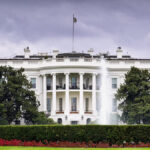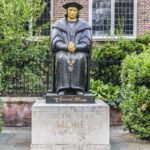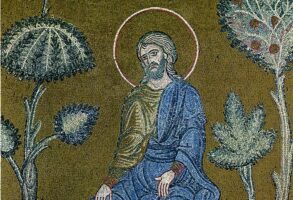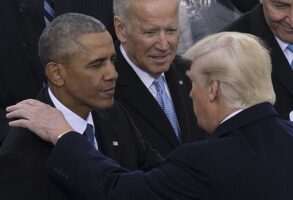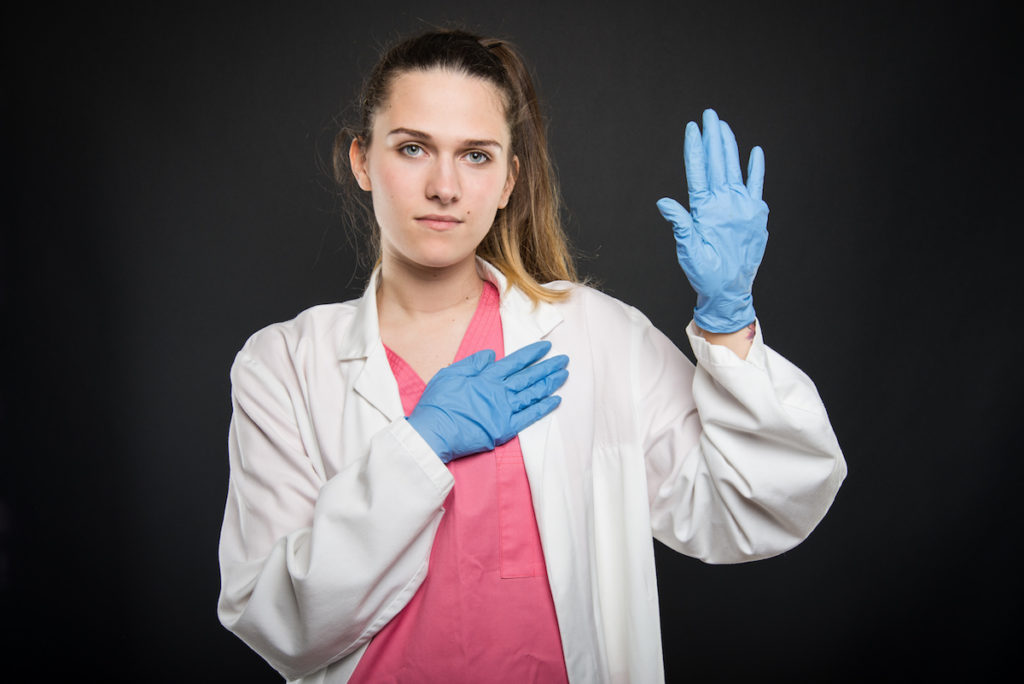
Published June 11, 2018
I swear by Apollo Physician and Asclepius and Hygieia and Panaceia and all the gods and goddesses, making them my witnesses, that I will fulfill according to my ability and judgment this oath and this covenant:
To hold him who has taught me this art as equal to my parents and to live my life in partnership with him, and if he is in need of money to give him a share of mine, and to regard his offspring as equal to my brothers in male lineage and to teach them this art—if they desire to learn it—without fee and covenant; to give a share of precepts and oral instruction and all the other learning to my sons and to the sons of him who has instructed me and to pupils who have signed the covenant and have taken an oath according to the medical law, but no one else.
I will apply dietetic measures for the benefit of the sick according to my ability and judgment; I will keep them from harm and injustice.
I will neither give a deadly drug to anybody who asked for it, nor will I make a suggestion to this effect. Similarly I will not give to a woman an abortive remedy. In purity and holiness I will guard my life and my art.
I will not use the knife, not even on sufferers from stone, but will withdraw in favor of such men as are engaged in this work.
Whatever houses I may visit, I will come for the benefit of the sick, remaining free of all intentional injustice, of all mischief and in particular of sexual relations with both female and male persons, be they free or slaves.
What I may see or hear in the course of the treatment or even outside of the treatment in regard to the life of men, which on no account one must spread abroad, I will keep to myself, holding such things shameful to be spoken about.
If I fulfill this oath and do not violate it, may it be granted to me to enjoy life and art, being honored with fame among all men for all time to come; if I transgress it and swear falsely, may the opposite of all this be my lot.
The Hippocratic Oath, Translated by Ludwig Edelstein
For most of medicine’s history, the Hippocratic Oath provided physicians with foundational principles—a universal standard for the practice of healing. Though modern scholars dispute his authorship, Hippocrates ostensibly wrote it in the fourth or fifth century B.C.E. The first recorded use of the Oath outside of ancient Greece was at the University of Wittenberg in Germany in 1508. And in the eighteenth century the Oath was translated into English. Medical schools in Europe and the United States have since used it as a way of ceremoniously admitting students into the medical profession.
But today, the Hippocratic Oath is not the only ethical code physicians use to guide their practices. The American Medical Association developed its own Code of Medical Ethics and its own Principles of Medical Ethics. The American Board of Physician Specialties created a code of ethics as well. And if that weren’t enough the American Osteopathic Association wrote its own ethical guidelines.
As these new options multiply, the Hippocratic Oath shrinks in significance. Although the practice of oath-taking in medical education increased significantly, from 72 percent in 1969 to 100 percent in 2009, according to a survey of US and Canadian medical schools, only 11.1 percent of schools now use the original version of the Hippocratic Oath. At Harvard Medical School, each class of students writes its own oaths. And 33 percent of schools surveyed use a new oath written in 1964 by the late Dr. Louis Lasagna, former Academic Dean of the School of Medicine at Tufts University.
For many, this is a welcome change. Dr. Robert Shmerling, the Faculty Editor of Harvard Health Publications, wrote in 2015 that the Hippocratic Oath consisted of “well-intentioned but outdated principles.” In an op-ed on euthanasia in the Los Angeles Times in 2014, Nora Zamichow and Dr. Ken Murray argued that, partially because of its prohibition against physician-assisted suicide, the Hippocratic Oath was a “flimsy shield” that physicians hide behind. “Since medicine has already discarded the vast majority of the Hippocratic oath,” they write, “why adhere to the sentence about poisoning, which probably was aimed at reminding physicians not to allow themselves to be enlisted in murder plots?” Emily Woodbury asserted in the Georgetown University Journal of Health Sciences in 2012 that the Hippocratic Oath ought to be discarded. She labeled the Oath as “sexist and elitist in the modern democratic context.” Its religious foundation is “irrelevant” and its cavalier attitude toward patient autonomy is “unacceptable.”
Admittedly, there are aspects of the Oath that are anachronistic. For instance, if we take the Oath literally, invoking Apollo and Asclepius doesn’t make much sense in an era when we no longer worship Greek gods. The author references “sons” over and over again and “brothers in male lineage,” implying perhaps that women are somehow unfit for or irrelevant to the profession. Today, females make up 50.7 percent of students entering medical school. Future physicians also utter the words “I will not use the knife,” resolving not do surgery. And yet surgeons are doctors as well.
Nevertheless, the Hippocratic Oath is more than simply outdated detritus. Its meaning is still rich and very much relevant. And we would be wise to look more closely at it.
The invocation of Greek gods is powerful. It is an acknowledgment of forces beyond our control that we don’t always understand. Many of our treatments work, but sometimes they do not. There are also diseases for which no treatments are available. Patients die or fall ill without a sensible explanation, mystifying and confusing us. Referring to powers greater than our own acknowledges our limitations and the limitations of our knowledge. It humbles us.
In the second paragraph, one declares loyalty to one’s colleagues, teachers, and future members of the profession. Perhaps this grew out of medicine as an apprenticeship: one spent time with one’s mentor, and it became a paternal relationship. Even today, though, teachers have a tremendous influence on what medical students decide to do. Trainees owe thanks to these doctors. But there is more. Dr. Leon Kass, a bioethicist who trained as a physician, wrote about the Hippocratic Oath in his book Toward a More Natural Science: Biology and Human Affairs, touching on this particular question of the mentor-student relationship. He writes:
Such a physician will understand that he is not a self-made or self-sufficient man, and that a belief in his own autonomy and independence is mistaken. He will appreciate that he owes both his life and his work to those who came before, that the art of medicine, like the rest of civilization, is a monument to the ancestors. By remembering his teacher and looking to his students, he will be kept aware of his own mortality, not only as a human being, but also as a practitioner of the art, while at the same time being called to remember the potential immortality of the art itself.
And in remembering this, one understands the importance of mentoring the next generation.
Subsequently the student swears to offer dietetic measures “for the benefit of the sick.” As doctors, we frequently prescribe medications. High cholesterol? High blood sugar? High blood pressure? A medication ameliorates the pathology. But many of these chronic conditions don’t necessarily require medication. They require lifestyle changes: exercise, fruits and vegetables, smaller portions. These are not easy changes, but they are within our control. Just as importantly, offering these lifestyle interventions demonstrates a respect for the patient’s power over his or her health. The doctor merely pulls back the curtain to remind the patient of this. As Kass writes,
I mean to emphasize the Hippocratic Oath’s tacit assertion that medicine is a cooperative rather than a transforming art, and that the physician is but an assistant to nature working within, the body having its own powerful (even if not invincible) tendencies toward healing itself.
The Hippocratic Oath then addresses euthanasia and abortion. It reads: “I will neither give a deadly drug to anybody who asked for it, nor will I make a suggestion to this effect. Similarly I will not give to a woman an abortive remedy.” I don’t want to make a case for or against euthanasia or abortion in this particular essay. However, we ought to think about these issues as physicians and how they relate to what it is that we do. Doctors regularly treat human beings at the beginnings and ends. Both abortion and euthanasia force us to ask when the beginnings and ends are and when it is appropriate to intervene. The Oath comes down on one side of this question. A physician is free to disagree with its conclusion, but he or she must, at the very least, consider it.
In the next part of the Oath, the student resolves not to perform surgery: “I will not use the knife, not even on sufferers from stone, but will withdraw in favor of such men as are engaged in this work.” Why would future surgeons take such an oath? This seems anachronistic indeed. But we need to interpret this line liberally. It is sometimes tempting in medicine to fill the role expected of you by the patient. As a neurologist, I know very little about lung cancer. But when I take care of patients with lung disease, they sometimes ask me questions about the potential treatments available to them. I don’t know the answers to these questions. To pretend to know, to occupy that role, would be grossly irresponsible and unethical. An internal medicine doctor should not operate. And a general surgeon should not be treating Parkinson’s Disease. This part of the Oath makes it clear that, for the sake of the patient, a doctor should do only what he or she is able to do and nothing more.
And when a doctor can do something for the patient, ethical deportment is vital, especially when it comes to privacy and the private dwellings of the patient. The Oath forbids the physician from entering the patient’s house to perform “intentional injustice” and from having sexual relations with the patient. This passage glows with significance and is still relevant. As Kass explains,
The physician is both privileged and burdened by this exposure of vulnerability. He has the opportunity, rarely given to other human beings, to see without illusion the darker side of the human condition, and to see humanity, unprotected and stripped of pretense, struggling gamely to preserve itself. He is privileged to receive the trust implied by admission to the house, to the inner sanctum of the patient’s life-world. Yet this trust is also a burden or at least a responsibility that it would be self-contradictory to violate.
A doctor should never take advantage of a patient’s vulnerability. To do so would contradict all that the physician does to gain the patient’s trust. This trust relies on the assumption that the doctor is here only to heal and nothing else. How disastrous it would be if patients needed to worry about an ulterior motive of their physicians!
Finally, at the end of the Oath, the student acknowledges the consequences of violating the promises just made. These principles are so integral to the profession that to violate them would be to abdicate one’s moral and professional standing. Such violations sooner or later decimate the bond of trust between physician and patient, leaving the profession and the patient in tatters. The Oath, then, offers physicians of any generation guidelines, proscriptions, and prescriptions on how to be to a good physician. We may not agree with all of its conclusions, but if we dismiss them without a second thought, we do so at our own peril.


